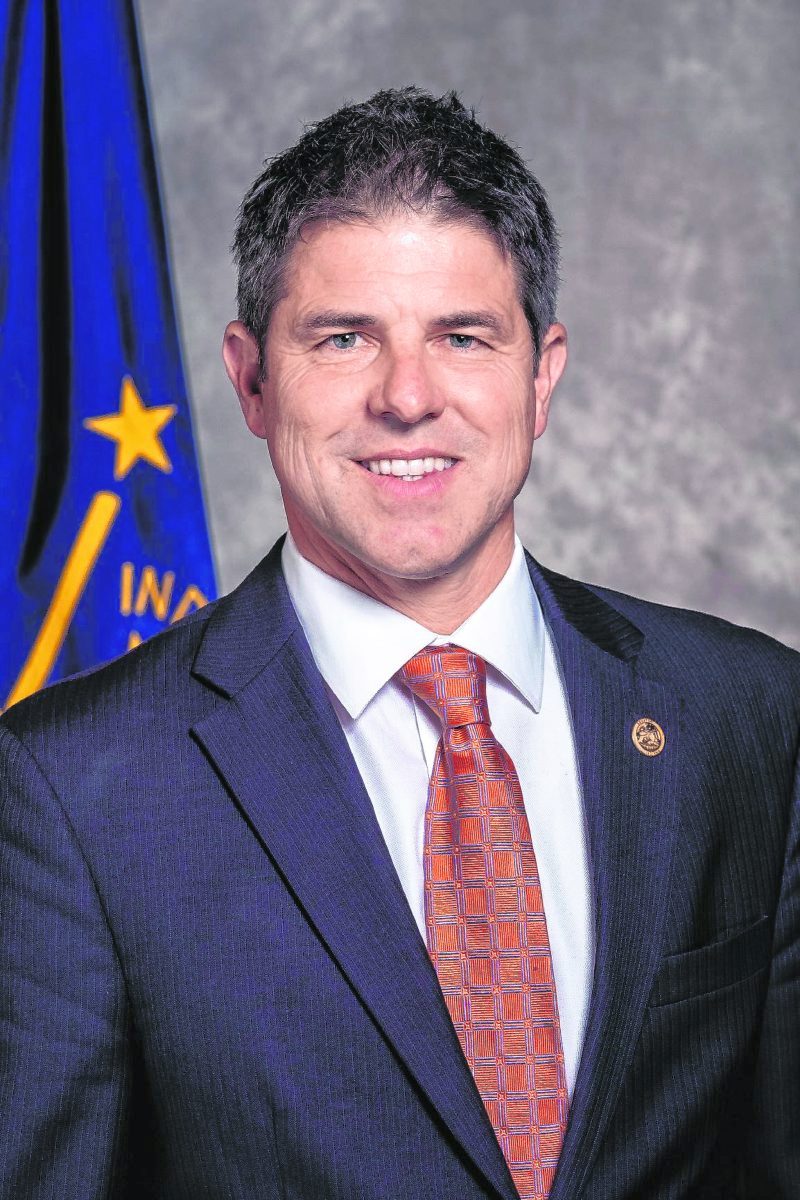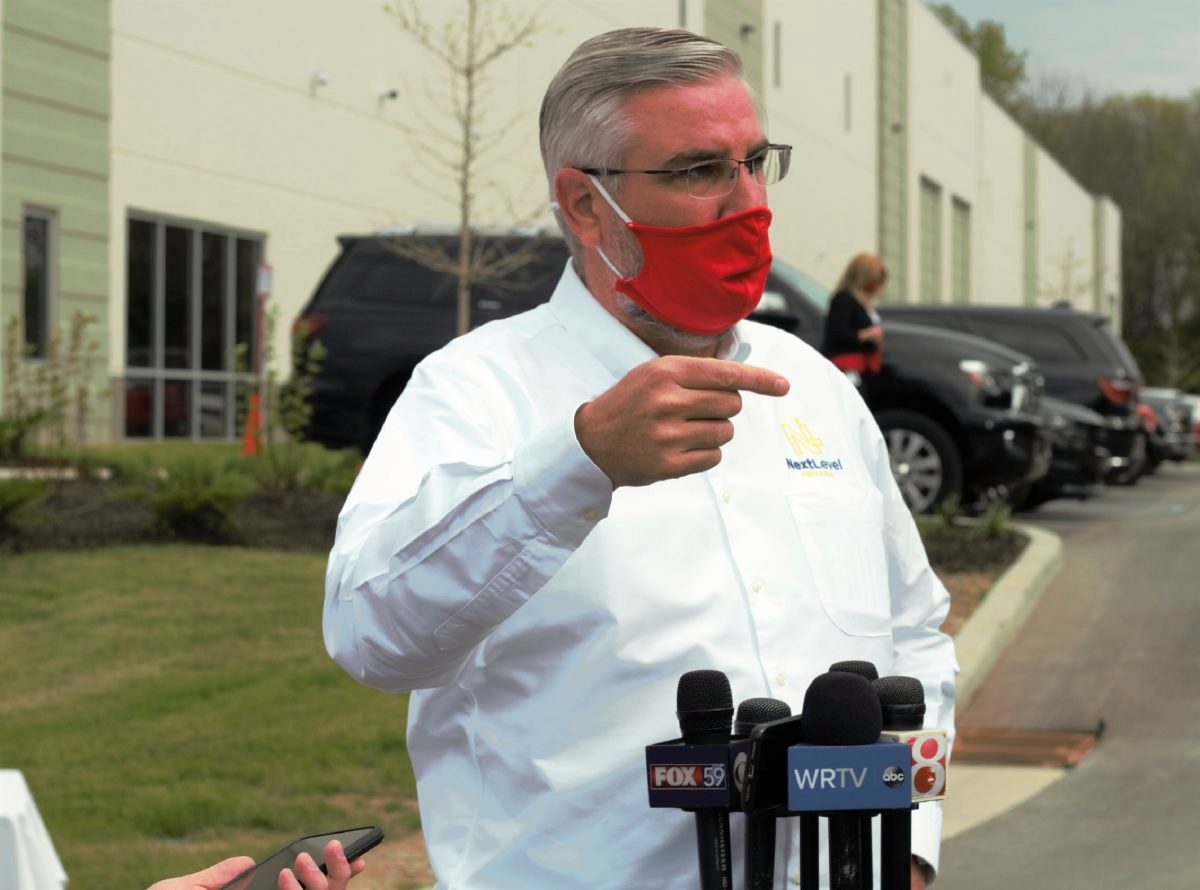Tension is rising between Indiana’s governor and his own party after he vetoed a bill from the state legislature that would have restricted local health departments’ powers.
Gov. Eric Holcomb vetoed Senate Bill 5 Tuesday evening — his third veto of the session.
SB 5 would prohibit local health officials from implementing additional or more stringent restrictions than the state during an emergency order, unless first approved by either a local city council or county legislative body.
Additionally, the bill would create an appeals process to dispute local health board enforcement actions during an emergency order, such as if a business was fined for not following a mask mandate.
Locally, Johnson County health department officials were opposed to the legislation. Dr. Craig Moorman, county health officer, has said the law dangerously mixes politics with a professional agency, adding that the Johnson County Board of Commissioners are “not well-versed” in public health.
Holcomb said Thursday at an event in Greenwood that he has made it clear to legislative leaders his position on the bill. He said it undermined local health officials’ ability to do their jobs.
“This was exhibit A, front and center, for more than a year how critically important they were,” Holcomb said. “We were still breaking records on the economic front, and it was because we had the right balance of lives and livelihoods.”
The veto comes after tensions between Holcomb and the Republican party have already been on the rise due to other disagreements.
Prior to vetoing SB 5, Holcomb vetoed House Bill 1123, which gives the General Assembly the power to call themselves back into session during a state of emergency, a law Holcomb said was unconstitutional in Indiana. However, the General Assembly voted to override the governor’s veto and make it law anyway.
Now, Holcomb is suing the state legislature over the constitutionality of the law.
Before this year, Holcomb had vetoed two bills total since becoming governor. He vetoed three this legislative session.
Though this year’s session has ended, the General Assembly did not formally adjourn last month because members have to return in the fall to vote on new Statehouse and Congressional district maps once Census data is available.
Lawmakers planned to return today to decide whether to override Holcomb’s veto of SB 5. A simple majority is needed to override a veto.
Holcomb said Thursday he had been communicating with legislative leaders following his veto, and he is willing to have discussions to come up with an alternative to the bill.
“These local health officials were heroic and went days without sleeping doing their jobs so that they could help save lives,” Holcomb said. “I want to make sure that we maintain that integrity.”
Most Republican state lawmakers voted in favor of the bill initially, including local Sen. Greg Walker, R-Columbus, who said it was a way for voters to hold health departments accountable.
Senate President Pro Tem Rodric Bray, R-Martinsville, who represents a portion of Johnson County, said in a statement Friday SB 5 brings an “important balance” between personal freedoms and public health.

Holcomb, an elected official, makes all the statewide health decisions after receiving recommendations from experts, so the same process should be done at the local level, Bray said.
“We fully expect our local leaders to heed the advice of those with expertise around them, including local health officers,” Bray said in the statement. “However, our local elected officials were elected to lead their communities, just like the governor leads the state, and those local officials are ultimately accountable to the voters.”
Leaders from the Indiana Public Health Association and Indiana State Association of County and City Health Officials on Friday spoke out against SB 5 and the possible veto override in a press conference Friday. They asked legislators to not rush to override the veto, and instead consider more collaboration with local health officials.
“While sometimes it may seem that public health is pitted against economic vitality, it really is not health versus economy, but rather the long-term protection of economic success through smart, evidence-based strategies designed to reduce disease transmission with short-term protection strategies,” said Dr. Jeremy Adler, president of the INSACCHO.
Members also reiterated that most elected officials do not have the same expertise to be put in charge of public health decisions.
“Public health officials need to make quick assessments, fast interventions, and all of that is done to protect the community,” said Susan Jo Thomas, past-president of IPHA. “Adding this additional layer of review from elected officials who don’t have the life experience or the training to make these decisions is really, really dangerous.”
If lawmakers override the veto today, any local mask-mandates or capacity restrictions on bars in restaurants would end immediately, unless a local government imposes such restrictions. Marion County still has a mask mandate and capacity limits on restaurants and bars.
Brian Baird, a Johnson County commissioner, said in a statement Friday he supports SB 5. It would give business owners and residents a better process to speak about their concerns with the health department, if they have any, he said.
“If nothing else, it would give them a process to be able to hopefully feel that their voices are being heard by people who have been elected to serve and hear them on a more local level,” Baird said in the statement.
Holcomb said Thursday there is already accountability at the local level because those officials appoint county health officers.
“Local officials and those boards hire the employees that make these decisions, so yeah, there’s accountability for all of us,” Holcomb said.
“But I don’t want to do anything that jeopardizes that integrity, and our ability to be nimble and swift in our actions.”





